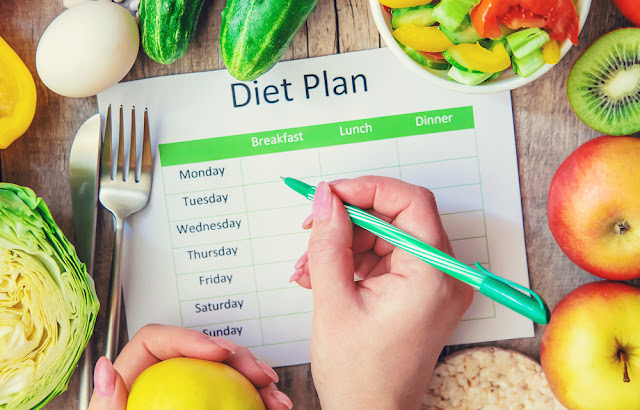In today's fast-paced world, maintaining a healthy weight is essential for overall well-being. A balanced diet plays a crucial role in achieving and maintaining a healthy weight. However, with the plethora of diet plans available, it can be overwhelming to choose the right one that suits your needs. This ultimate guide will help you create a healthy and nutritious diet plan tailored specifically for weight loss, providing you with the knowledge and tools necessary to achieve your fitness goals.
Understanding the Basics
Before delving into the specifics of a weight loss diet plan, it's important to understand the basic principles of nutrition. A balanced diet consists of carbohydrates, proteins, fats, vitamins, and minerals. The key is to consume these elements in the right proportions to fuel your body efficiently and promote weight loss.
Set Realistic Goals
One of the first steps in creating a successful weight loss diet plan is setting realistic and achievable goals. Avoid drastic changes that promise quick results, as they often lead to unsustainable weight loss and can be detrimental to your health. Instead, aim for gradual, steady progress. A realistic goal is losing 1-2 pounds per week, which is both achievable and healthy.
Calculate Your Caloric Needs
To lose weight, you need to create a calorie deficit, meaning you consume fewer calories than your body needs to maintain its current weight. Calculate your Basal Metabolic Rate (BMR) and Total Daily Energy Expenditure (TDEE) to determine the number of calories you should consume daily. Several online calculators can help you with these calculations, ensuring you have a clear understanding of your caloric needs.
Choose Nutrient-Dense Foods
Focus on incorporating nutrient-dense foods into your diet plan. These foods are rich in vitamins, minerals, and antioxidants while being relatively low in calories. Vegetables, fruits, whole grains, lean proteins, and healthy fats should form the foundation of your diet. These foods provide essential nutrients and keep you feeling full, making it easier to maintain a calorie deficit.
Protein Is Key
Protein plays a crucial role in weight loss by promoting feelings of fullness and preserving lean muscle mass. Include sources of lean protein such as chicken, turkey, fish, tofu, legumes, and low-fat dairy products in your diet. Protein-rich snacks can also help curb cravings and keep you satisfied between meals.
Mindful Eating and Portion Control
Practicing mindful eating techniques can help you become more aware of your body's hunger and fullness cues. Slow down, savor each bite, and listen to your body's signals. Additionally, pay attention to portion sizes. Use smaller plates and bowls to naturally reduce your portion sizes, preventing overeating.
Stay Hydrated
Proper hydration is often overlooked but is essential for overall health and weight loss. Drinking water before meals can help control appetite, and staying hydrated ensures your body functions optimally. Aim to drink at least eight 8-ounce glasses of water daily, and more if you're physically active.
Limit Processed Foods and Sugars
Processed foods and sugary snacks are often high in calories and low in nutritional value. These foods can lead to rapid spikes and drops in blood sugar levels, causing cravings and overeating. Minimize your intake of processed foods, sugary beverages, and desserts. Instead, opt for natural sweeteners like honey or fruits to satisfy your sweet cravings.
Incorporate Regular Physical Activity
While diet plays a significant role in weight loss, combining it with regular physical activity enhances the results. Aim for at least 150 minutes of moderate aerobic activity or 75 minutes of vigorous aerobic activity per week, combined with muscle-strengthening activities on two or more days a week. Exercise not only burns calories but also boosts your metabolism and improves overall fitness.
Monitor Your Progress and Stay Consistent
Lastly, keep track of your progress to stay motivated and accountable. Regularly weigh yourself, take measurements, and note any changes in your energy levels and overall well-being. Remember that consistency is key. Stick to your diet plan and exercise routine even on days when motivation is low, as long-term success requires commitment and perseverance.
Conclusion
Creating a healthy and nutritious diet plan for weight loss is a gradual process that involves understanding your body's needs, making mindful food choices, and staying consistent with your efforts. By setting realistic goals, calculating your caloric needs, choosing nutrient-dense foods, incorporating regular physical activity, and practicing portion control, you can achieve sustainable weight loss and improve your overall health and well-being. Remember that every individual is unique, so it's essential to listen to your body and make adjustments to your diet plan as needed. With dedication, patience, and the right mindset, you can embark on a successful weight loss journey and achieve your fitness goals.

Posting Komentar